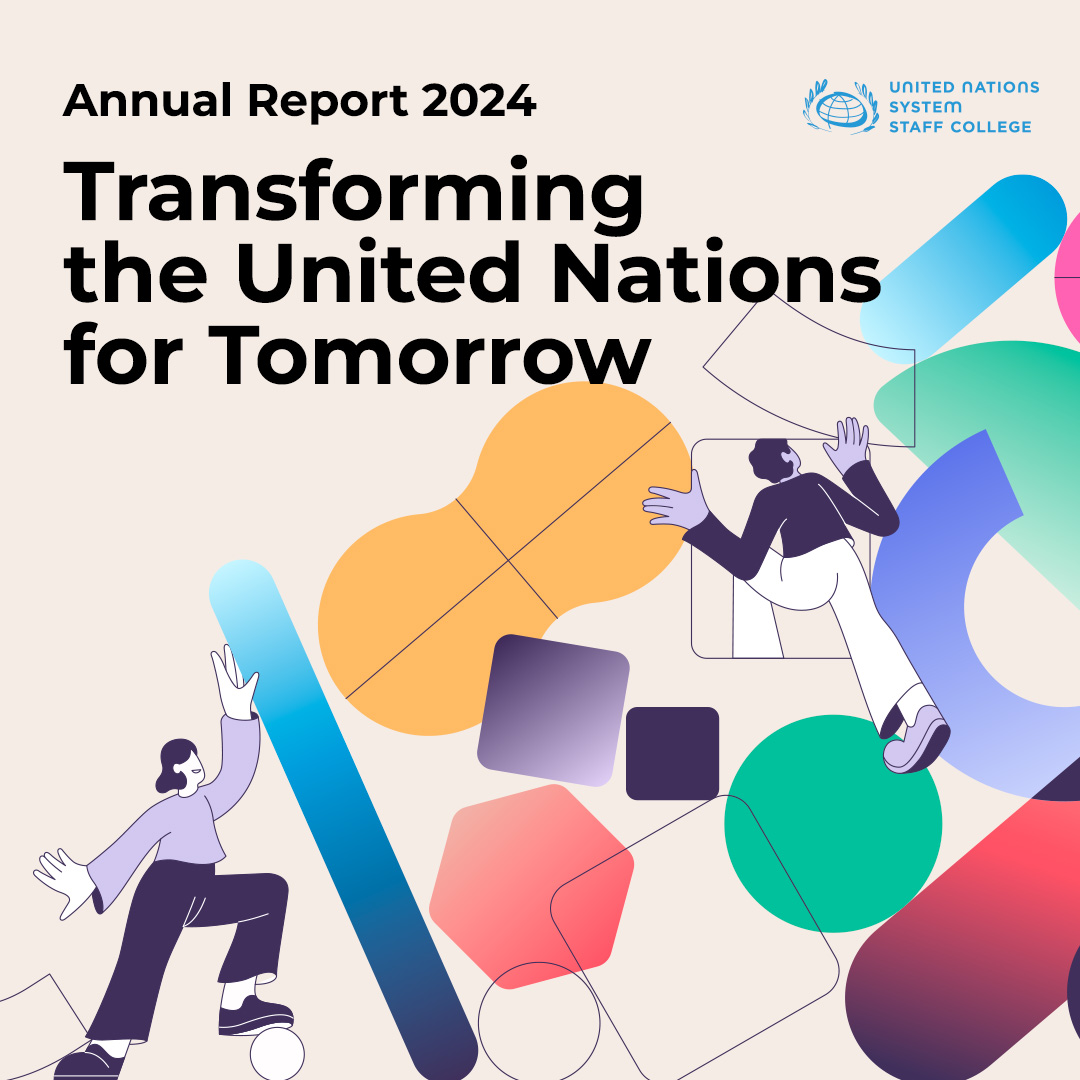


With just five years remaining until 2030, progress toward the Sustainable Development Goals (SDGs) is off track.
With just five years remaining until 2030, progress toward the Sustainable Development Goals is off track. Recognizing the urgency of accelerating action, the UN Secretary-General launched UN 2.0, a bold initiative outlining the internal transformations needed across the UN system to better support Member States in advancing the 2030 Agenda
UN 2.0 envisions a modernized United Nations—one that is forward-thinking, dynamic, and equipped with cutting-edge skills to navigate the complexities of the twenty-first century. At the heart of this transformation lies the Quintet of Change, a strategic framework centered on five key capabilities: foresight, digital, data, behavioural science, and innovation. These skills, embedded within an organizational culture that values agility, continuous learning, and curiosity—while prioritizing gender equity—represent the United Nations’ commitment to strengthening its ability to deliver impact. To realize this vision, the UN system must invest in learning—empowering its people with the knowledge and skills needed to drive change. As the UN system’s dedicated learning institution, the United Nations System Staff College (UNSSC) provides a shared platform for continuous development, equipping UN personnel and entities with the tools to transform not only their skill sets but also the way they apply expertise to complex global challenges. A more capable UN system is needed more than ever to revolutionize global problem-solving, shaping a more sustainable future for generations to come.
UNSSC is recognized by the system as a centre of excellence on learning for UN 2.0. This report highlights how the Staff College is advancing learning across the Quintet of Change, equipping UN professionals to lead with confidence and tackle emerging challenges with agility. Through high-quality learning experiences, we are not just preparing the UN system for the future—we are actively shaping it.
WIDE REACH
Our learning products connect with a diverse audience across the UN system and beyond
High productivity
We roll out an exciting activity almost every single working day.
How satisfied are you with the overall quality of the training you attended?
5.2 Out of 6
How relevant to your work was the training you received?
5.2 Out of 6
How would you rate UNSSC’s facilitation and teaching methodology?
5.2 Out of 6
Highly recommended
Our participants consistently praise the exceptional quality of our programmes, highlighting the in-depth knowledge and practical skills gained.
Inclusive
We are proud to foster gender parity, ensuring our programmes welcome and empower both women and men.
Centre of Excellence
We are recognized as a leader in online learning, setting a standard for excellence and innovation.

Female 48%

Male 49%

Not discosed 3%
Centre of Excellence
We are recognized as a leader in online learning, setting a standard for excellence and innovation.
Online
Face to face
Blended

The world is changing, yet the mission of the United Nations—to promote peace, uphold human rights and build a sustainable future for all—is enduring. To navigate this evolving landscape, the UN system must continuously adapt, equipping its people with the skills and knowledge needed to respond to emerging challenges. This is especially critical in light of the “UN80” initiative, which aims to modernize the organization to ensure that it remains effective, cost-efficient and responsive to the people it serves.
As the inter-agency learning institution of the UN system offering critical capacity support on UN priorities, the work of the United Nations System Staff College (UNSSC) is about more than just learning—it is about ensuring that the UN system is prepared for the future, leveraging its vast expertise, equipped to deliver on its commitments.
This annual report tells the story of how UNSSC is supporting that transformation, preparing the UN workforce for a “UN 2.0.” In 2024, UNSSC reinforced its role as the system’s learning and knowledge hub, delivering integrated and forward-looking learning solutions that empower UN personnel, facilitate the transfer and scale-up of good practices, and strengthen the United Nations’ capacity to support Member States.
Investing in learning is not optional—it is essential. In the past year, UNSSC welcomed over 66,000 learners through 210 learning activities, with a significant portion coming from across the UN system. This engagement underscores the growing recognition of UNSSC as a centre of excellence for learning and its capacity to deliver results at scale for UN personnel in a highly cost-effective manner.
As the world changes and financial constraints tighten, we must ask: How does the UN system continue to invest in learning while facing the reality of shrinking budgets and increasing demands? Now, more than ever, leveraging UNSSC’s expertise is both a strategic and cost-effective choice. UNSSC provides substantive and relevant support to UN colleagues on issues of peace and security, sustainable development and management and leadership. UNSSC digital platforms provide a unified learning space for the entire UN system, fostering efficiency and economies of scale.
UN entities can maximize impact while optimizing costs by tapping into UNSSC’s well-developed ecosystem of learning solutions. Furthermore, they can leverage UNSSC as a common platform, strengthening inter-agency collaboration and addressing shared needs. The world demands a more efficient United Nations. As a system-wide centre of excellence and strategic partner for learning, UNSSC is well positioned to support this goal— empowering UN personnel and organizations to adapt, innovate, and deliver results.
With gratitude and best wishes,
Miguel Panadero